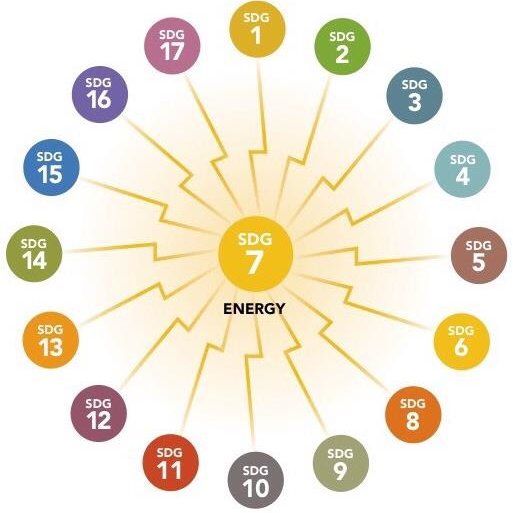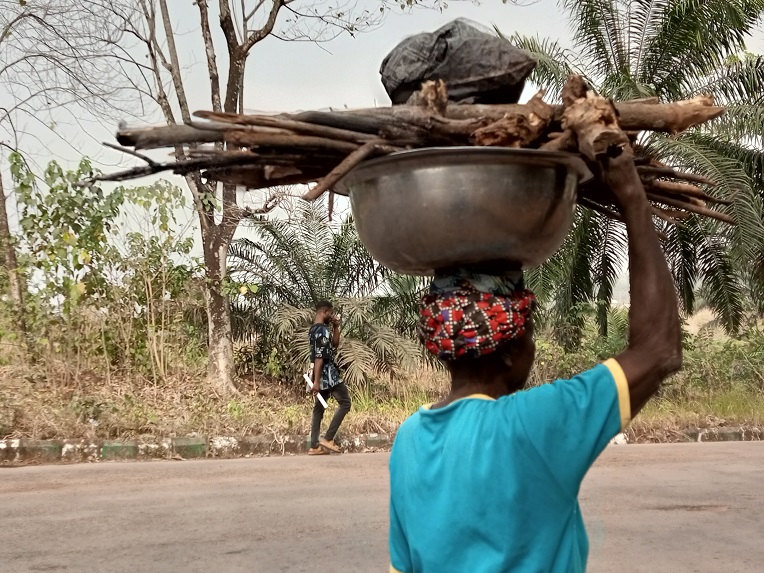
By Jiata Ekele
Unwana Community, also known as Unwara, is reportedly the third-most important urban area in Ebonyi State, Southeast Nigeria. It is situated in the southern part of Ebonyi State and bordered in the north by Afikpo, in the west by Edda, and in the east by Cross River State, Nigeria.
According to www.names.org , the name Unwana is of African origin that belonged to the ibibio, annang, efik, afikpo and oron tribe in Nigeria, and is translated as Light of God, Bright or anything extremely bright.
Despite its bright name, Unwana, the seat of the first tertiary institution established in southeast Nigeria, lies in darkness without electricity for almost two years now.
“The name Unwana in Afikpo (Igbo) language means Light but heartbreakingly, we have been living without electricity for more than 1028 days now, still counting” – decries Mrs Nneka Ibiam, a 67 years old indigene of Unwana.
“The lack of electricity has hindered access to potable water (boreholes), quality education for all levels of education, especially the Federal Polytechnic, and electric cooking stoves. The power issue is also directly linked to the increased cult activities and insecurity issues,” Mrs Nneka added.
No Sustainable Energy, No Quality Education
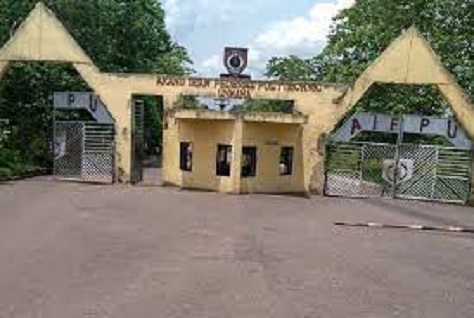
Unwana community hosts the first tertiary institution ever established in southeast Nigeria, Akanu Ibiam Federal Polytechnic (AIFPU). The Polytechnic , was founded in 1981 by the Federal Government of Nigeria, and was named after Akanu Ibiam, the First Republic Governor of Eastern Region, Nigeria. However, ever since the interruption of the power supply, the output of educational services has been dwindling.
Mr Orji Ebeke, a Lecturer at the Biochemistry Unit, Department of Science Laboratory Technology (SLT) AIFPU who has lived in Unwana for more than thirty (30) years, narrated his awful experience with the energy crisis.
“Prior to this time, there was always electricity in school from 10 am to 4 pm, which facilitated comfortable working and learning environment but things have fallen apart. The Power Holding Company of Nigeria (PHCN) disconnected the power supply, and the School Management could not bear the energy demand of the Polytechnic.
“Currently, there is no light any longer in the Admin Block except for independent departmental or unit generators. Furthermore, there are limitations to the things these generators can carry. Most times, we cannot work with our laptops or enjoy the convenience of cooling fans in fact, all the air conditioners have been out of use for years.
“I don’t know how electricity would even get to Unwana right now because almost all the lines and poles are destroyed. No one can guarantee the health of the transformers; it’s either they have been vandalised or no longer works due to the lack of use.”
The Head of Computer Engineering Department AIFPU, Engr. Amadi O. Amadi, expressed his displeasure with how the energy crisis had driven lots of residents out of Unwana especially AIFPU employees.
“Most people have been forced to migrate to neighbouring towns and even states where they can have access to electricity. A majority now prefer spending more time outside Unwana and can efficiently work-from-home. This has financial implications on the employees. It has also reduced the staff’s enthusiasm and commitment to their jobs.
“Lecturers wish to rush back home and staff that are supposed to live in this community live elsewhere because there is no light here. How can the community develop without people? No new houses are built, no new primary and secondary schools either.”
The President of AIFPU’s Students’ Union Government (SUG) Mr Dennis Ude Ajah, equally regret the impact of the energy crisis on the lives of AIFPU students.
“In every community, light and water are very necessary. The light crisis affects not only the academic aspect of the students but also the entrepreneurship sector of the student council. So many businesses within the school are not profiting maximally. Additionally, the cost of writing and printing project research work has drastically increased bringing cost implications on students’ finance,” he said.
“Most people have moved from Unwana to Abakaliki, the state capital or other states where there is electricity. It’s sad that some students would not wish to continue their HND (Higher National Diploma) in AIFPU after their ugly experience during ND (National Diploma).
“Students can’t do without light. We can’t engage in night readings or evening tutorial classes. Though the School Management has been trying to ensure that we have light from 7am -10am but this has been restricted to buildings with lesser energy demand. The electricity does not include laboratories.
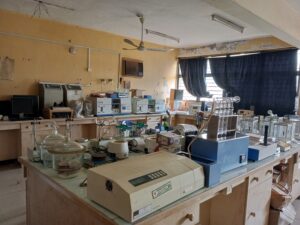
“We need light for longer hours to enable the students to study more and carry out more practicals. We need sustainable energy in AIFPU. The students leader posited that students need a sustainable energy supply for a more quality education.” Mr Chigozie Obi, the Departmental President of Science Laboratory Technology Department added that the energy crisis had impacted on students social life and security.
“Our social activities have reduced, and we don’t move freely once it’s dark anymore. Speaking from the SLT laboratory aspect, students now bear the financial cost of fueling the generator to power some lab equipment such as autoclave, incubator and centrifuge, during practical.
“Additionally, there has been a limit in the number and the type of equipment been used by students. Invariably, it has impaired the research capacity of students and also brought financial burdens”
Mr Bright A. Akpoyibo, an NYSC (Nigeria Youth Service Corps) Member who is serving in one of the research laboratories, highlighted how the use of generators with laboratory equipments had damaged lots of devices.
“Two of my chargers have been burnt by the generator: the first was in the engineering lab and the second happened two days ago in biochemistry lab. I am not the only one that has been affected by such occurrences and with this type of story. We really need a sustainable source of energy in Unwana.”
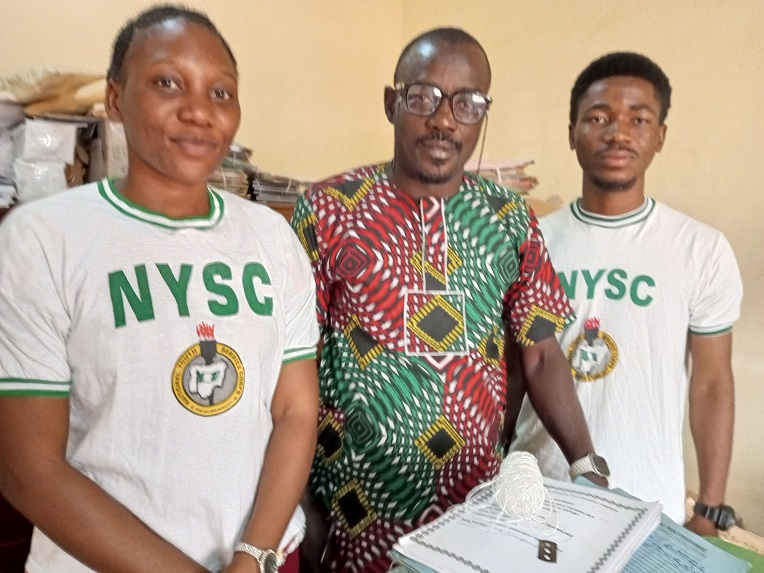
The Plight of Women in Energy Crisis
In Unwana Community, Elder Mrs Ugo A. Agha (Secretary to the Ihemba Age-Grade Indigenous Women group) expressed her grief with the current energy crisis and narrated the plight women were facing.
“It’s been long we had energy supply in Unwana. In fact, I can’t even recollect the last time there was power supply from EEDC – It’s been more than three years now.
“Energy is vital in our daily lives, especially for cooking, obtaining clean water, lighting for teaching our children at night, and energy for our small food industries. It’s alarming to see how women bear the brunt of lack of access to energy because the task of collecting firewood for cooking and heating often falls on them.
According to UN Women, spending more time around the home, women and girls accounted for 6 out of 10 of the 4.3 million premature deaths caused in 2012 by indoor air pollution.
The lack of modern energy sources has other consequences for women and girls, who are often the primary household energy managers. They may spend hours each day collecting fuel and carrying heavy loads. In households that cook with solid fuels, girls spend 18 hours a week, on average, gathering fuel.
In Unwana Community, Elder Mrs Ugo says that the women group does not interfere in the facilitation of power supply. It has always been the work of the men especially those at the local government council. There have been a couple of activities without results. For instance, two weeks ago, we saw saw men parading with wires and cutting down trees. We don’t know the persons involved or the type of work they’re trying to implement.
Electricity Crisis and the SDGs
In 2015, world leaders including the Nigerian government, agreed to 17 Global Goals (officially known as the Sustainable Development Goals or SDGs). The Sustainable Development Goals (SDGs) or Global Goals are a collection of 17 interlinked global goals designed to be a “blueprint to achieve a better and more sustainable future for all”. But with seven years into the SDGs, how much has changed?
In spite of the fact that energy is essential for powering economic activities and providing a just, healthier and more prosperous future for all, energy crisis is not peculiar to Unwana community but has been reported to continually hinder the developmental progress of sub-Saharan Africa.
Sub-Saharan Africa also has one of the lowest average annual improvement rates in energy intensity at just 1.4 per cent, well below the global average of 2.0 per cent in 2019 and the 3.0 per cent needed to achieve the SDG7 target.
According to the Energy Progress Report 2021, In Sub-Saharan Africa, the 2019 electricity access rate was just 46 per cent: with an increase from 548 million people in 2018 to 570 million people who still lacked access to electricity. The world’s 20 least-electrified countries in terms of percentage of the population with electricity are all in Sub-Saharan Africa.
In fact, for the first time, the report shows that more people without access to clean cooking solutions are in Sub-Saharan Africa than anywhere else. In the last decade, population growth has outpaced new clean cooking access, resulting in 50 per cent more people without access to clean cooking solutions in the region.
Undoubtedly, from job creation to economic development, from security concerns to the full empowerment of women, energy lies at the heart of the Sustainable Development Goals (SDGs) – agreed to by the ‘ ‘world’s leaders in September 2015 as part of the 2030 Agenda.
The energy crisis of Unwana Community calls for attention and action from world leaders as we push for the actualisation of the SDGs.
